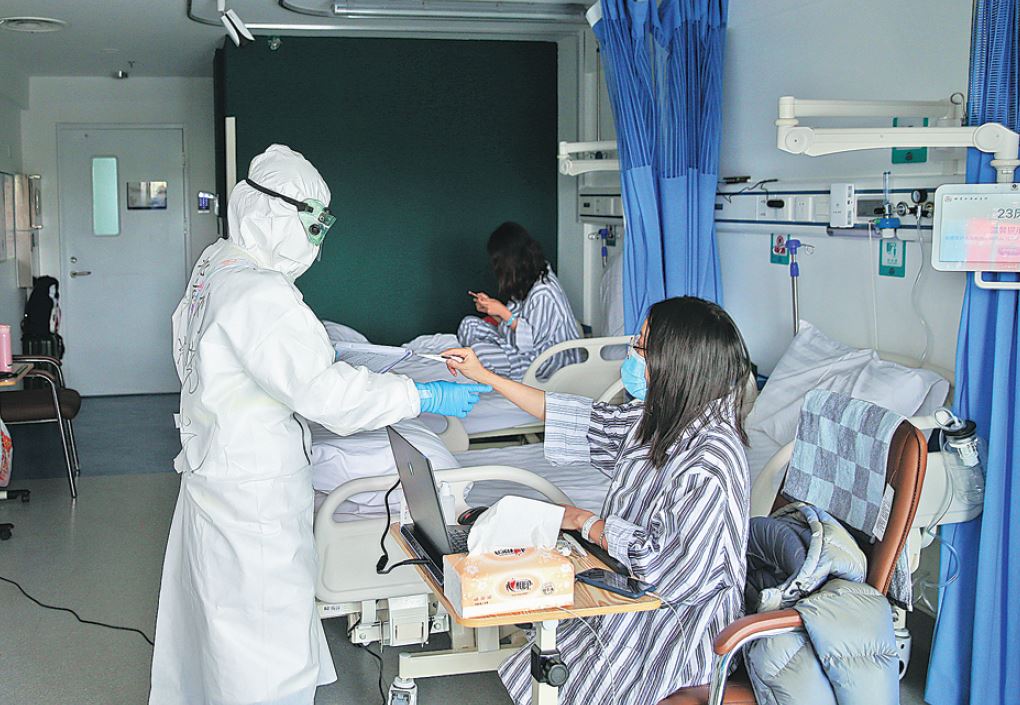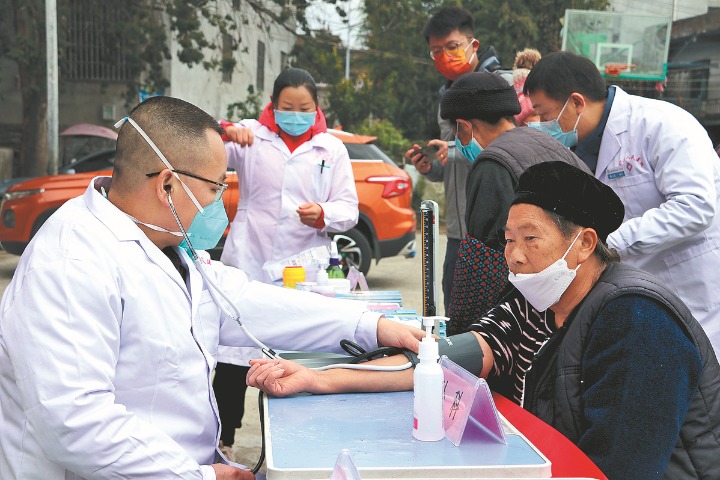Why can Chinese frontline nurses work for 4 hours or even longer?

First, in the early stage of the COVID-19 outbreak, some nurses had to work for 6 hours due to the inadequacy of protective medical equipment.
Second, there are not enough nurses. According to 2017 OECD data, there were 8 nurses per 1,000 people on average in its member countries, with Norway ranking the highest, amounting to 17 nurses per 1,000 people. China has only 2.7 nurses per 1,000 people, and the number is even lower in Hubei province. During the COVID-19 epidemic, Hubei province had a total of around 130,000 nurses, including 28,600 nurses in the medical aid teams from across the country and more than 100,000 indigenous nurses [1], which made the average 2.4 nurses per 1,000 people in the province. Under normal circumstances, temporary and part-time care workers could supplement nurses' work, but many of them were on leave and did not return to work amid the outbreak.
Third, due to legal restrictions, hospitals in some other countries tend to reduce costs by increasing the number of employees and reducing working hours [2]. In the US, each nurse is not allowed to work for more than 70 hours per month. Hospitals will need to pay at least 1.5 times of the salary if nurses' working hours are prolonged. As such, hospitals would rather hire more nurses to prevent them from working overtime, rather than bear the increased costs.
Fourth, nurses largely work full-time in China, while most nurses in some other countries work part-time. This has led to different working hours. Chinese nurses usually work full-time in a medical institution, while foreign nurses can choose to work full-time or part-time. During the COVID-19 pandemic, some foreign hospitals employ temporary and part-time nurses, but these nurses may work in multiple hospitals.
In addition, during the outbreak, many nurses volunteered to work overtime in China. On February 17, World Health Organization (WHO) Director-General Tedros Adhanom Ghebreyesus paid tribute to Chinese nurses and said he was touched by their devotion in this crisis.
References:
[1] China Health Statistics Yearbook 2019
[2] Erasmus, N., Slaves of the state - medical internship and community service in South Africa. South African Medical Journal, 2012. 102(8): p. 655.
Authors:
Lin Weiwei,Institue of Medical Information, Chinese Academy of Medical Science
Dong Dandan, Center for International Knowledge on Development
Please feel free to contact us by sending your questions to question@chinadaily.com.cn or commenting on China Daily app. We will ask experts to answer them.














